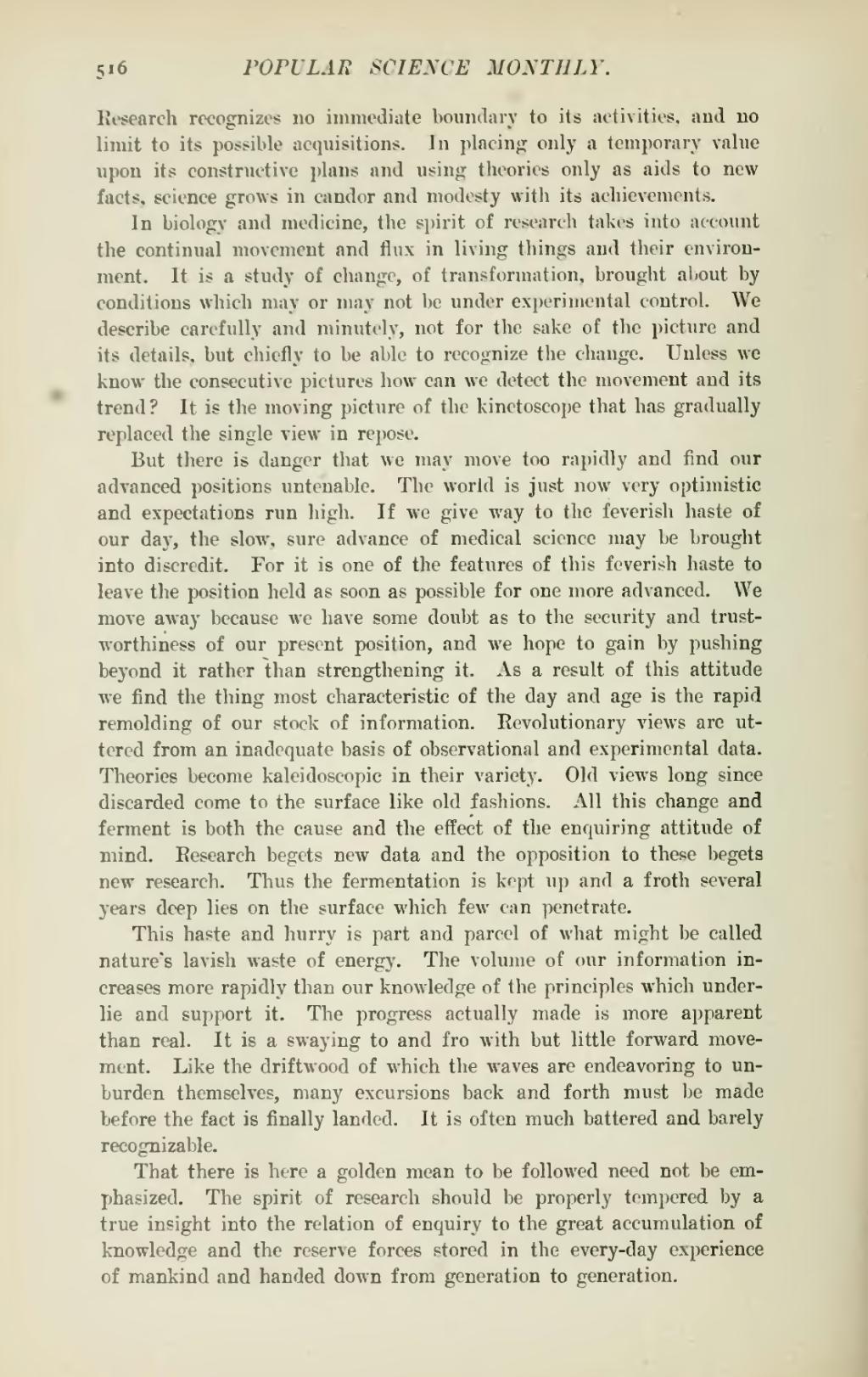Research recognizes no immediate boundary to its activities, and no limit to its possible acquisitions. In placing only a temporary value upon its constructive plans and using theories only as aids to new facts, science grows in candor and modesty with its achievements.
In biology and medicine, the spirit of research takes into account the continual movement and flux in living things and their environment. It is a study of change, of transformation, brought about by conditions which may or may not be under experimental control. We describe carefully and minutely, not for the sake of the picture and its details, but chiefly to be able to recognize the change. Unless we know the consecutive pictures how can we detect the movement and its trend? It is the moving picture of the kinetoscope that has gradually replaced the single view in repose.
But there is danger that we may move too rapidly and find our advanced positions untenable. The world is just now very optimistic and expectations run high. If we give way to the feverish haste of our day, the slow, sure advance of medical science may be brought into discredit. For it is one of the features of this feverish haste to leave the position held as soon as possible for one more advanced. We move away because we have some doubt as to the security and trustworthiness of our present position, and we hope to gain by pushing beyond it rather than strengthening it. As a result of this attitude we find the thing most characteristic of the day and age is the rapid remolding of our stock of information. Revolutionary views are uttered from an inadequate basis of observational and experimental data. Theories become kaleidoscopic in their variety. Old views long since discarded come to the surface like old fashions. All this change and ferment is both the cause and the effect of the enquiring attitude of mind. Research begets new data and the opposition to these begets new research. Thus the fermentation is kept up and a froth several years deep lies on the surface which few can penetrate.
This haste and hurry is part and parcel of what might be called nature's lavish waste of energy. The volume of our information increases more rapidly than our knowledge of the principles which underlie and support it. The progress actually made is more apparent than real. It is a swaying to and fro with but little forward movement. Like the driftwood of which the waves are endeavoring to unburden themselves, many excursions back and forth must be made before the fact is finally landed. It is often much battered and barely recognizable.
That there is here a golden mean to be followed need not be emphasized. The spirit of research should be properly tempered by a true insight into the relation of enquiry to the great accumulation of knowledge and the reserve forces stored in the every-day experience of mankind and handed down from generation to generation.

